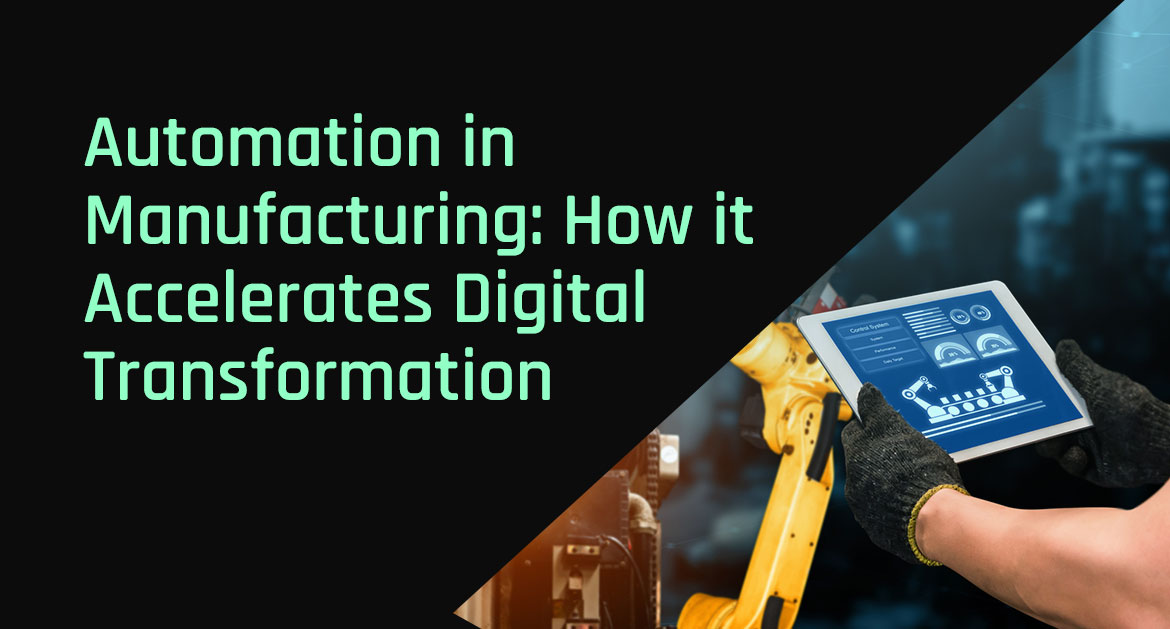D.S. Harder coined the term automation, while he was the engineering manager at Ford Motors in the 1940s. It was when Henry Ford introduced his moving assembly line and large manufacturing plants during the Second Industrial Revolution that the term automaton picked up the pace. Decades later, automation is driven by software applications and the Internet of Things, where machines can communicate with each other faster and execute complex tasks better while human operators oversee operations. The introduction of 5G wireless technology and rising demand for industry 4.0 solutions are accelerating the demand for automation solutions across sectors.
As reported by Fortune Business Insights, the global industrial automation market is forecasted to grow at a CAGR of 9.8%, from USD 205.86 billion in 2022 to 395.09 billion by 2029. Undoubtedly, the inclusion of automation in manufacturing processes is already redefining how goods are produced and how quickly manufacturers can get their goods to the market. From floor production and demand forecasting to quality control and disaster response, automated systems are deployed to streamline manufacturing processes and replace humans with machines, especially in tasks that could endanger people or are repetitive.
In this post, we discuss how automation accelerates digital transformation in manufacturing across sectors, and why the benefits of automation are transforming everything from business management to consumer choice.
How Does Automation in Manufacturing Improve Systems for Increased Business Value?
By investing in smart factory conceptualization and determining areas of improvement, manufacturers leverage automation solutions to accelerate their digital transformation initiatives. Using automation to streamline tasks increases a manufacturer’s capabilities for increased production at volume and velocity, while facilitating better employee experiences.
The drivers of modernization in the manufacturing industry are outlined below to indicate how digital transformation improves business outcomes.
-
Technology investments have risen to tackle fluctuating markets
Expenditure on digital investments has risen over the past decade, and manufacturers are increasingly adopting emerging tech to reinvent their business models. Companies that are more digitally agile and mature show improved resilience to market fluctuations and enhanced service delivery to effectively meet consumer demand.
-
New and improved talent management strategies help combat attrition
Rapidly changing workforce dynamics and preferences have pushed manufacturers to leverage digital transformation with employees at the center of their workplace strategy. Despite a record low level of job openings, and hiring activity, voluntary separations are increasing. The shortage in talent to manage business activities is tackled by automation, requiring fewer people to handle business-critical tasks that are also labor-intensive. Manufacturers can harness critical process data and employee insights to transform their workplace strategy and include employee-centric policies by employing automation solutions.
-
Digital transformation in manufacturing improves supply assurance strategies
In a study conducted by KPMG, it was reported that in 2023, cybercriminals are becoming more sophisticated in the ways they infiltrate supply chains and steal or damage businesses. Manufacturers are thereby relying on automated solutions by leveraging cutting-edge AI and Machine Learning capabilities to secure their networks and mitigate potential threats before they arise. The increased utilization of digital tools and ramping up of local capacities help judge the manufacturing supply chain value and make corrections on time.
-
Adopting a holistic smart factory approach to unlock new opportunities
Automation in manufacturing opens doors to new possibilities for inventive, agile, and more resourceful business activity. Many manufacturing conglomerates are laying the technology foundation for futuristic smart factories of the future. Leveraging AR and VR to visualize processes before any fundamental changes are made, helps manufacturers design and develop more resilient and business-centric manufacturing systems and business processes. Manufacturers are already experimenting with metaverse platforms to position their products and services to meet the new-age consumer trends leveraging automation.
-
Emphasizing corporate social responsibility and business sustainability
For manufacturers, their commitment to environmental, social, and governance (ESG) policies is a critical differentiator that makes or breaks the customers’ trust. Automation in manufacturing is evolving fast, and new policies are surfacing every day. By integrating new reporting systems with manufacturing activity, and providing efficient channels for customer interaction and feedback, automation in manufacturing helps businesses map their ESG goals with customer sentiment and to meet the rising demand for sustainable products and services.
Creating a Virtual Environment to Test Your Automation Solutions
Manufacturing companies are leveraging disruptive technologies like AR (Augmented Reality) and VR (Virtual Reality) to automate processes and optimize business operations. By visualizing new infrastructural changes before implementation, data-driven decisions can be made to boost production and mitigate any risks that may arise from system changes. Visualization saves immense costs for manufacturing companies that can now rely on specialized software to assess and deploy robust systems without incurring infrastructural overheads.
Using low-code platforms to envision and implement automation in manufacturing, like Azure digital twins and Mendex, has reinforced the pressing need for intelligent factories that incorporate more sustainable means of sourcing, producing, and distributing resources. By unifying disparate systems and eliminating outdated systems, manufacturers are visualizing the future of their businesses with custom applications that ensure automated business delivery and help mitigate potential risks to their value chains.
Stay Ahead of the Competition with Scalable Industrial Automation Solutions
Flatworld EDGE is a leading provider of industrial automation solutions that can help you stay ahead of the competition and transform how you work. Our team of experts can help you assess your needs and develop a customized automation solution that meets your specific requirements.
We offer a wide range of automation solutions, with dedicated experts handling robotic process automation (RPA), machine learning (ML), artificial intelligence (AI), and services, such as consulting, implementation, and support for end-to-end automation.
Contact us today to learn more about how we can help you automate your business processes and improve your bottom line.






